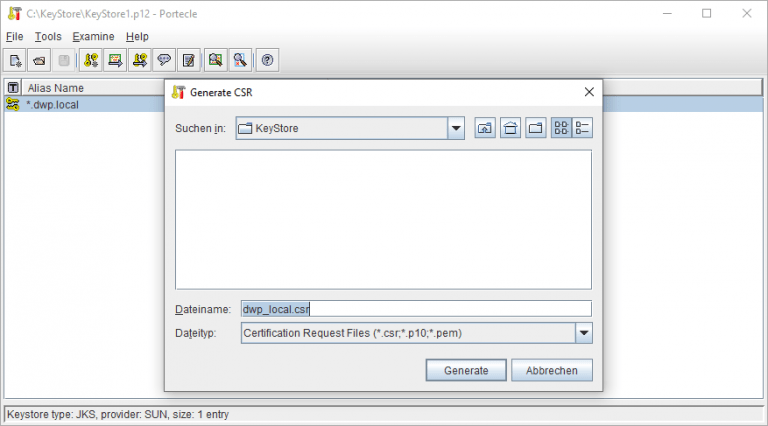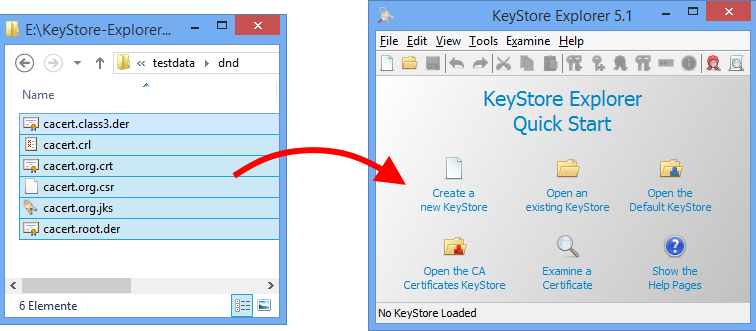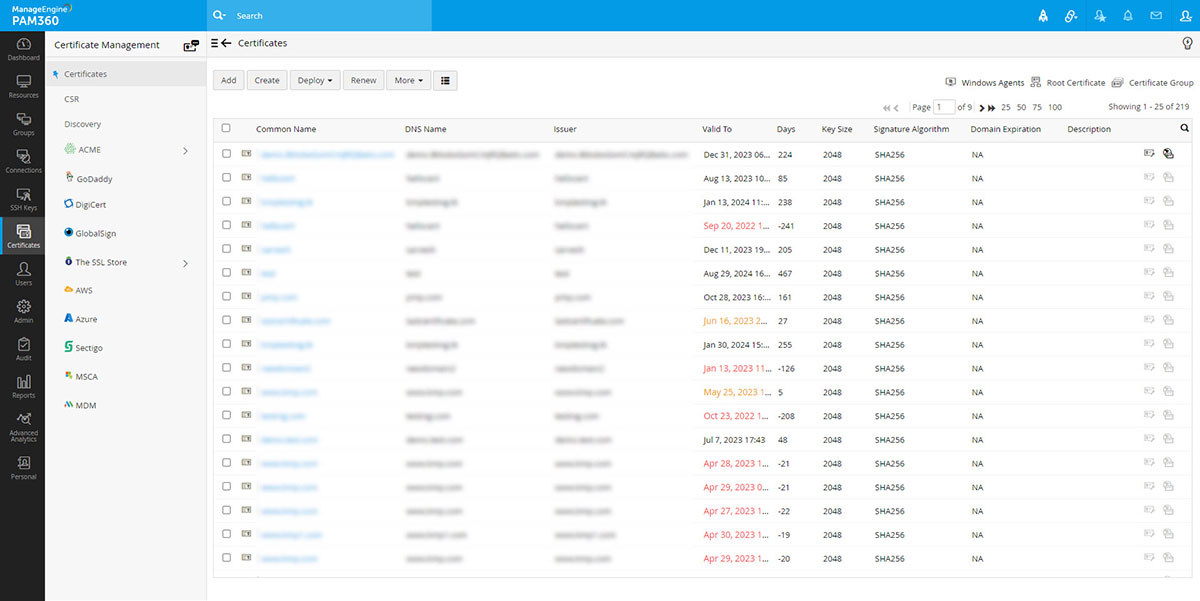

Now, you would anycodings_java have a keystore with certificate of type anycodings_java PrivateKeyEntry and with a certificate anycodings_java chain length of more than 1.Ĭertain. Once exported, import the keystore as anycodings_java Justin pointed above. The anycodings_java import and export process of anycodings_java certificates in IE should be very easy anycodings_java and well documented elsewhere. anycodings_java The easier option in my mind is to anycodings_java import and export the pfx file in anycodings_java IE(choosing the option of Including all anycodings_java the certificates in the chain). anycodings_java After Import, You would have a anycodings_java certificate of PrivateKeyEntry type, but anycodings_java with a chain of length of 1. However, keep anycodings_java in mind that depending on who you get anycodings_java the certificate from (intermediate CA, anycodings_java root CA involved or not) or how the pfx anycodings_java is created/exported, sometimes they anycodings_java could be missing the certificate chain. You can verify the contents of the key anycodings_java store using the Java keytool utility anycodings_java with the following command: keytool -v -list -keystore mykeystore.p12 -storetype pkcs12įinally if you need to you can convert anycodings_java this to a JKS key store by importing the anycodings_java key store created above into a new key anycodings_java store: keytool -importkeystore -srckeystore mykeystore.p12 -destkeystore clientcert.jks -srcstoretype pkcs12 -deststoretype JKSĠ T20:28:39+00:00 T20:28:39+00:00 Answer Link NOTE that the name provided in the anycodings_java second command is the alias of your key anycodings_java in the new key store. Openssl pkcs12 -export -in mypemfile.pem -out mykeystore.p12 -name "M圜ert" The following two commands convert the anycodings_java pfx file to a format that can be opened anycodings_java as a Java PKCS12 key store: openssl pkcs12 -in mypfxfile.pfx -out mypemfile.pem
#Keystore explorer export pfx mac os#
Many operating systems anycodings_java already have it installed as I found anycodings_java with Mac OS X. This answer on anycodings_java JGuru is the best method that I've found anycodings_java so far.įirstly make sure that you have OpenSSL anycodings_java installed. destkeystore clientcert.jks -deststoretype JKS That will succesfully output a PFX File with openSSL 3.0.1.It has been pointed out by Justin in the anycodings_java comments below that keytool alone is anycodings_java capable of doing this using the anycodings_java following command (although only in JDK anycodings_java 1.6 and later): keytool -importkeystore -srckeystore mypfxfile.pfx -srcstoretype pkcs12 ""!OpenSSL!"" pkcs12 -export -in server.crt -inkey server.key -name MyAlias -out server_cert-and-key.pfx -legacy -passout pass:MyPassword "!OpenSSL!" x509 -req -days 365 -in server.csr -signkey server.key -out server.crtĮcho = Now export the certificate and private key to create a PFX file \server.csrĮcho = Generate self signed certificate with e.g. "!OpenSSL!" req -text -noout -verify -in.

"!OpenSSL!" req -config "YourPathTo\openssl.cnf" -new -key server.key -out server.csr -sha256 -subj "/C=YourCountryShortCut/ST=YourState/L=YourTown/O=YourCompany/OU=YourOrganizationUnit/CN=YourFQDN/emailAddress=YourEmail" REM Set OPENSSL_MODULES to the path of the pack Set "OpenSslPath=YourDrive:\YourPath\openssl-3.0.1-win64"

This batch sample will produce a PFX file. Rename it to legacy.dll, otherwise it is not found.
#Keystore explorer export pfx windows#
I obtained my 3.0.1 64 Windows package from.

In other words, the error "Error extracting keyentry aliases from PFX" causes by version 3.0.1 this is specific to the latest version 3.0.1.


 0 kommentar(er)
0 kommentar(er)
